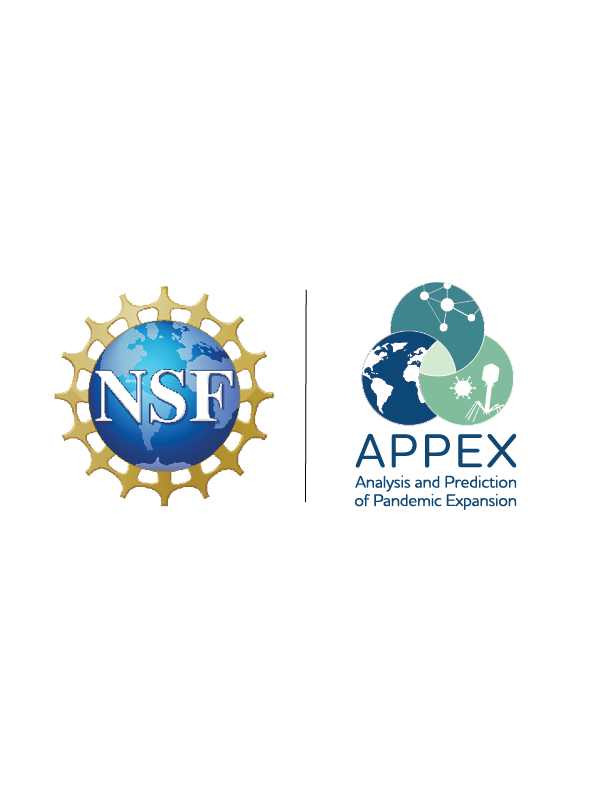
| A Case-Control Study of Outbreaks in Wapanoag Histories |
| This team will work to analyze the specific case study of historic infectious disease outbreaks in 17th century Wapanoag using a Case-Control framework |
| Case Studies in Case-Control Epidemiology 1 |
| This is one of the teams that will identify useful case-study examples and apply the Case-Control framework and methods to analyze those examples |
| Case Studies in Case-Control Epidemiology 2 |
| This is one of the teams that will identify useful case-study examples and apply the Case-Control framework and methods to analyze those examples |
| Cutting Edge Ensemble Models |
| This team will work on filling in identified gaps among types of ensemble methods approaches and suggesting new application areas for existing methods |
| Designing New MultiFactorial Analytic Methods |
| This team will use elements of voting theory, computational and algorithmic complexity theory, and statistics to design new methods for multifactorial analysis |
| (Delayed Start) Applications of MultiFactorial Analytic Methods |
| Once the design team makes some progress, this delayed-start team will test the methods in application to particular case-studies |
| Employing a MultiDisciplinary Simulation Sandbox to Ask Questions in Socio-Econ-Epidemiology - 1 |
| This team will employ the just-completed Socio-Econ-Epidemiological simulation sandbox tool to explore specific combinations of factors and how they are likely to impact outbreak dynamics |
| Employing a MultiDisciplinary Simulation Sandbox to Ask Questions in Socio-Econ-Epidemiology - 2 |
This team will employ the just-completed Socio-Econ-Epidemiological simulation sandbox tool to explore specific combinations of factors and how they are likely to impact outbreak dynamics |
| Employing a MultiDisciplinary Simulation Sandbox to Ask Questions in Socio-Econ-Epidemiology - 3 |
This team will employ the just-completed Socio-Econ-Epidemiological simulation sandbox tool to explore specific combinations of factors and how they are likely to impact outbreak dynamics |
| Theory Group on Simulation Best Practices |
| This team will work on foundational theory to provide best practices for simulation studies |
| Generative AI Hypothesis Discovery |
| This team will work to build a general framework for fine tuning and querying generative AI tools and LLMs to enable discovery of new domain sources of relevance and successfully reject others |
| MetaAnnotation for Multidisciplinary Data - Architecture |
| This team will design and develop an APPEX-Semantic Framework platform for integrated, unified, and shared access to the relevant data extracted from existing heterogeneous databases and repositories to enable creation/emergence of communities of interest |
| MetaAnnotation for Multidisciplinary Data - User Desdirata |
| This team will act as a client focus group, brainstorming desired properties and features for our APPEX-Semantic Framework |
| Risk in topology of buildings |
| This team will work on methods to map and predict epidemiological risks within buildings based on the structural topology of the building |
| Compromised Urban-Suburban-Rural Infrastructure and Waterborne Infection Risks |
| This team will consider the specific challenges of built infrastructure of many types relating to water to predict waterborne disease risks |
| Climate and environment and multiscale ecological/epidemiological pattern identification 1 |
| This is one of the teams that will develop physically-based and causally-informed data analysis techniques that can differentiate between statistical flukes and meaningless correlations vs. causally-meaningful and explainable patterns |
| Climate and environment and multiscale ecological/epidemiological pattern identification 2 |
| This is one of the teams that will develop physically-based and causally-informed data analysis techniques that can differentiate between statistical flukes and meaningless correlations vs. causally-meaningful and explainable patterns |
| Climate and environment and multiscale ecological/epidemiological pattern identification 3 |
| This is one of the teams that will develop physically-based and causally-informed data analysis techniques that can differentiate between statistical flukes and meaningless correlations vs. causally-meaningful and explainable patterns |
| Spruce Budworm Prediction/Hindcasting |
| This team will bring together economic, ecological, and epidemiological principles to try to understand and predict the specific case study of outbreaks of Spruce Budworm in North American forests |
| Outbreak Outcomes in Historically Redlined Areas |
| This team will work to analyze the impacts of historical redlining on health outcomes from infectious disease outbreaks in the US |
| Definitions of Minoritized Populations in Case-Control Frameworks |
| This team will work to identify which factors of identity-driven outcomes in the human system are mutable, comparing mutual perceptions of healthcare providers and consumers/users in different populations, and translating descriptions of outcomes as they are defined across multiple disciplines and members of affected communities |
| Health Disparities in Hospital Epidemiology |
| This team will work to develop a framework for modeling disparities in hospital epidemiology and antibiotic stewardship |
